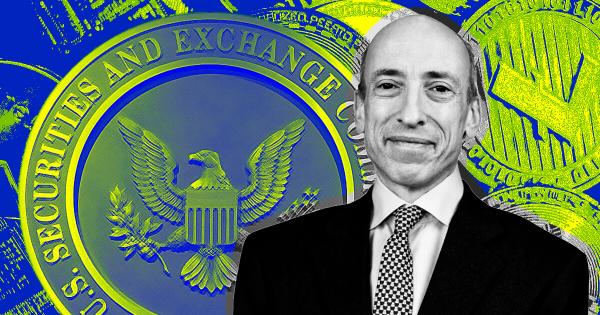
Bitget managing director Gracy Chen said that if users are not doing illegitimate activities like money laundering, they should be “pretty comfortable” with the KYC process.
Crypto exchange Bitget has grown significantly despite the challenges brought by the bear market. In 2023, the exchange announced two $100-million funds — one dedicated to crypto projects in Asia and another for maximizing the company’s long-term impact in the crypto space.
At the Bitget EmpowerX Summit held in Singapore, Cointelegraph’s Zhiyuan Sun spoke with Gracy Chen, managing director of Bitget. The two spoke about Bitget’s growth amid the bear market, pausing its expansion in Hong Kong and the United States, and why they believe that implementing Know Your Customer (KYC) protocols is important for exchanges.

According to Chen, the company grew 10 times its original size in just two years. “For our company’s employees, we had about 150 two years ago, and right now, 1,500,” Chen said. The executive highlighted that this is a result of their efforts in the past few years and their being driven by results. Chen explained:
“We think it’s like running a marathon. So, what we’ve been doing, and if you look at our team, it’s a very operating result-driven team.”
The Bitget executive also mentioned a lot of their efforts, from branding and product launches to the company’s partnership with soccer superstar Lionel Messi, as some of the reasons for its growth over the past years. “In terms of the secret sauce, I guess it’s because of these things that we are doing — we are growing,” she added. At the same time, the growth makes them “financially healthy” to do more activities, according to Chen.
Related: Taiwan to restrict unregistered, noncompliant foreign crypto exchanges
When asked about the exchanges’ lack of presence in two key markets — the United States and Hong Kong — Chen noted that regulatory uncertainty in the U.S. is holding Bitget back from coming in. She said:
“We want to wait and see how it develops and then make a decision on whether we want to serve the U.S. customers or not. This is something that has always been developing, but I don’t see us serving the U.S. market in the short term.”
When it comes to Hong Kong, Chen said that they’ve already been in talks with the Hong Kong government and are currently in the process of applying for a license in the special administrative region.
Chen also spoke about why the exchange implemented mandatory KYC requirements for all of its users on Sept. 1. According to the executive, some of their users were complaining about the new requirement. However, the executive believes that implementing KYC is a good way to filter out “illegitimate” users. She said:
“I’m pretty sure if the user is a financially healthy user, such as, like, if they’re not doing something illegitimate, such as money laundering, they should be pretty comfortable with the KYC process.”
Apart from this, the executive believes that mandatory KYC is going to become a trend among the bigger crypto exchanges in the near future.
Magazine: DeFi faces stress test, DoJ fears run on Binance, Hong Kong’s crypto trading








